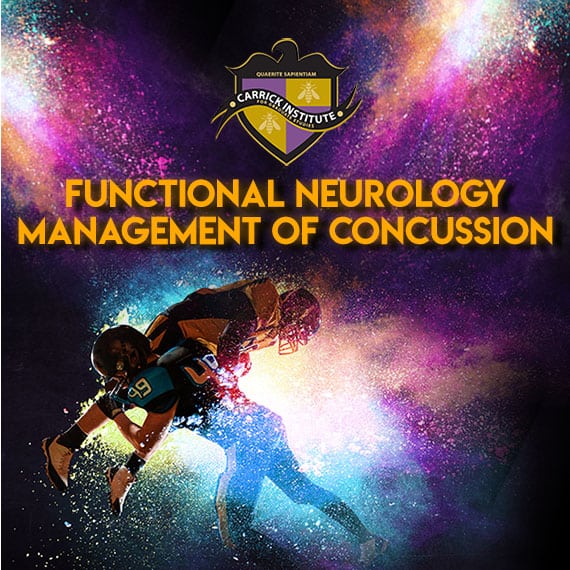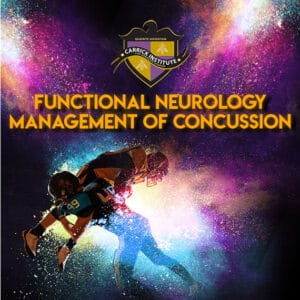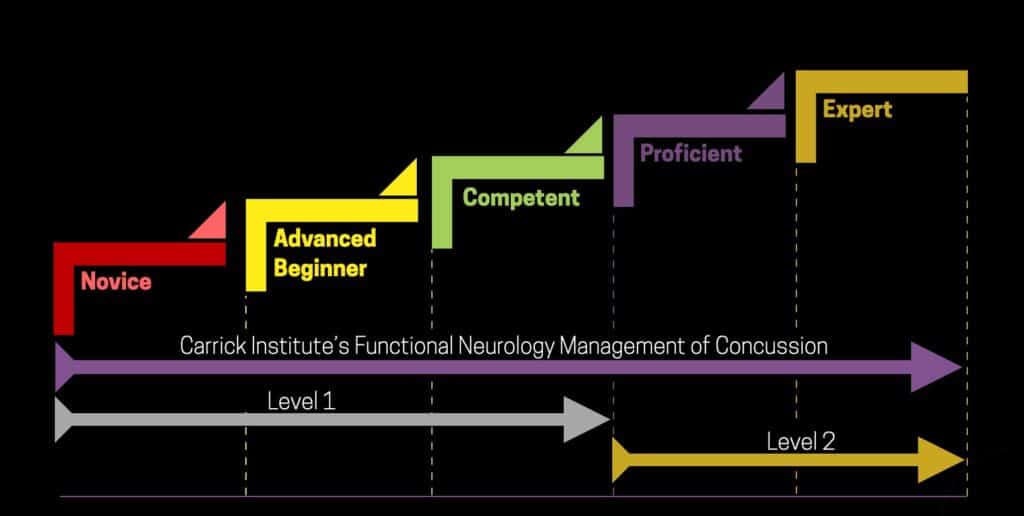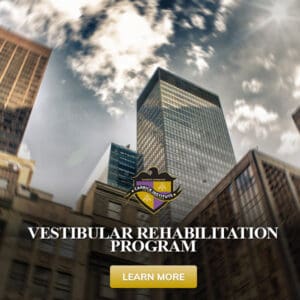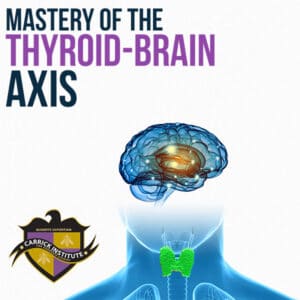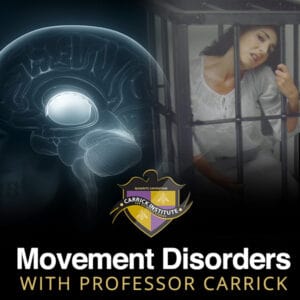
Presented by: Matthew Antonucci, DC, DACNB, FACFN, FABCDD, FABNN, FABVR, FABBIR, FICC
Level 1 Objectives
Chapter 1 – Consensus Guidelines and Recommendations [Concussion Primer Flipped Classroom (via online self-paced learning)]
- Definitions and Causes of mTBI / Concussion
- Pathophysiology of mTBI / Concussion
- Epidemiology of mTBI / Concussion
- The Acute Management and Urgent Care of mTBI / Concussion
- Treatments for Acute of mTBI / Concussion
Chapter 2 – Evaluation of the Intangible Effects of Concussion (via online self-paced learning)
- The Importance of Obtaining Baseline Brain Health Measurements
- Measuring Consciousness
- Pathophysiology of Cortical and Subcortical Structures in mTBI
- Phenotyping Concussions
- Collecting Data and Creating Predictions/Prognosis
- Creating a Concussion Intake Form
- The Relationship Between Sensory Seeking Behaviors and Mental Toughness and Concussion
- Tools for Assessing the Symptom Burden of mTBI
- Outcome Assessment Tools for Concussion, and Health-Related Quality of Life (HRQoL)
- The Screening of Affect for Non-Psychologists
- Screening for Sleep Disturbances in Concussion
- Screening for Autonomic Dysfunction in mTBI
- Supporting Literature Reviews on All Previously Listed Topics
- Library of Outcome Assessment Tools and Patient Reported Outcome Measures
Chapter 3 – Quantifying Concussion-Related Brain Function at the Bedside (via online self-paced learning)
- Analysis and Comparison of Contemporary Concussion Evaluation Tools (Screening, Confirmatory, Objective)
- The Embryological Development of Sensory Processing and Motor Control and Its Application to mTBI and Concussion
- The Role of the Physical Examination in mTBI and Concussion
- The Interpretation and Correlation of Vital Signs in Relationship to mTBI
- The Bedside Evaluation of Autonomic Function in Concussion
- Evaluating Cognitive Performance
- Optometric and Orthoptic Functional Evaluation
- Assessing Somatesthesia and Motor Control
- The Bedside Evaluation of Assessment of Graviception, Linear and Angular Movement
- Evaluating the Effects of Sensory Error on Autonomic Function
Chapter 4 – Creating and Performing an Evidence-Based Baseline/Concussion Examination (On-site Training – 3 days)
- This is a 3-day, hands-on, skill-development course. You will be the doctor and the patient. You will leave with certifiable proficiency in performing the examination procedures detailed in Chapter 3, and the results of your personal brain health baseline assessment. Please wear loose fitting clothing and bring the tools introduced in Chapter 3
- This course consists of more than 50 EPAs or Entrustable Professional Activities that will be taught and perfected throughout the weekend. Scholars will need to attend, be assessed for proficiency, and must pass to achieve FN-MOC certification status.
Chapter 5 – Management of Concussion Sequela (via online self-paced learning)
- Tools and Technology for Clinical Efficiency
- Crafting a World-Class Report of Findings
- Evidence Supported Palliative and Therapeutic Modalities for Concussion and mTBI
- Including generalized approaches to:
- Cardiovascular/Metabolic
- Vestibular
- Musculoskeletal
- Visual/Oculomotor
- Cognitive/Affective
- Return to Activities and Return to Play Protocols
- Putting It All Together: Your Community and Your Practice
- Introduction to Moderate and Severe Brain Injuries
- Discussion on Chronic Traumatic Encephalopathy or “CTE”
FN-MOC Certification
- Chapter 4 must have been completed on-site and proficiency confirmed by the course instructor.
- All 5 chapters must be complete at the time of application.
- At the time of examination, applicants must present 15 de-identified, but verifiable, direct-contact experiences with an individual or individuals with concussion or mTBI.
- Applicant must receive a passing score on the examination:
- 100 Multiple-Choice Questions
- 5 essay questions, 20 points each (grading rubric will be furnished at the time of examination)
Included in Your Tuition for Level 1
- 70 hours of training (consists of online learning plus a 3-day onsite training for Module 4 – Creating and Performing a Baseline Assessment)
- All-access to the digital recording of the class.
- Any future updates to the course videos or other materials.
- Re-attendance*
- 70 Neurology Hours towards the ACFN (American College of Functional Neurology) & ACNB (American Chiropractic Neurology Board)
- Access to the flipped classroom with all-access updates.
- 3 months of unlimited access to Medline upon completion of the module
- *Scholars will receive CEU & neurology hours upon their first completion of the module. Any re-attendance is considered an audit. Scholars must maintain an active account to receive benefits.
IMPORTANT** Chapter 4 is intended to be taken in person. You are able to take Chapter 4 course via live-stream.
* To achieve certification status, you must attend the onsite portion. By purchasing the live-stream option below, please be aware you will not achieve certification status until you attend chapter 4 onsite.**



